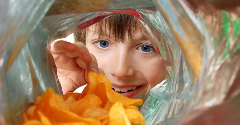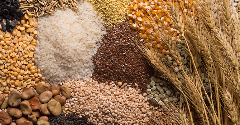News
How clean label ingredients affect packaging
28 May 2018When companies consider ‘cleaning up’ their product labels, they often focus primarily on how to remove or replace certain ingredients – but they should also consider implications for product packaging.

Clean label is difficult to define. It encompasses the idea of ‘natural’ but has become much more than that in recent years, expanding to include concerns about allergens, how ingredients are produced, whether they are humanely or ethically sourced, and perhaps whether they are organic. But when it comes to how consumers decide which products have the cleanest labels, packaging matters.
Innova Market Insights said in 2014 that clean label had become ‘clear label’, meaning that consumers were looking for greater transparency from food companies about what was in their products. From a packaging point of view too, some firms have taken this quite literally. The Kind range of snack bars, for example, features a transparent panel on the front of the product showcasing whole ingredients, like nuts and fruit, so consumers can see exactly what they are buying.
On the other hand, clean label products do not always lend themselves to such literal transparency. For example, switching out artificial colours and replacing them with natural ones sometimes means choosing ingredients that are more susceptible to degradation when exposed to light, so companies have needed to use opaque packaging materials to prevent undesirable colour changes. Sometimes, moving from artificial preservatives to naturally sourced ones may also require more robust packaging to supplement the effect of a weaker antioxidant preservative system.
Following reformulation, manufacturers will also need to think about which attributes would be most beneficial to call out on-pack. Largely, this depends on the category and the target consumer. “No artificial additives” might be a particularly important claim for children’s foods, while in snack products, allergen-free claims might be of interest. However, dairy proteins could be appealing in another context, such as in sports nutrition, and it is possible to leverage an ingredient list that includes butter or cream, for example, to give an impression of old-fashioned wholesomeness.
Other companies have chosen to underline the naturalness of their products with more natural-looking materials, such as recycled paper, or by emphasising environmentally friendly packaging, such as degradable plastics. Swiss Pac is among the packaging specialists offering custom oxo-degradable bags as part of its product range, while even the agribusiness giant Cargill has broadened its product portfolio to include more starches for use in packaging as the sector has expanded.
As consumer demand for clean label products continues to grow, companies need to consider what that means for the whole product as it appears in the supermarket. Packaging must be part of that equation, from a technical standpoint, as well as a marketing one.
Related news

Is the price of a sustainable and healthy diet… unsustainable?
4 Mar 2025
Healthier foods are more than twice as expensive per calorie as less healthy foods, with healthier food increasing in price at twice the rate in the past two years.
Read more
Does calorie labelling lead to reduced consumption?
27 Feb 2025
Calorie labelling of food products leads to a small, but consistent, reduction in the number of calories consumed, a study suggests.
Read more
Brands, retailers, and countries remain divided over Nutri-Score labels
30 Jan 2025
Europe's supermarkets and manufacturers are far from aligned over a standarised approach to nutrition labelling. Some welcome the non-mandatory Nutri-Score labels with open arms, while others have “considerable concerns”.
Read more
EU Parliament passes stricter packaging rules
20 Jan 2025
The European Parliament voted to approve updates to the packaging and packaging waste regulation, including enforceable re-use targets, limits on certain single-use packaging types, and restrictions on the use of PFAS “forever chemicals”.
Read more
Louis Drefyus Company powers on in plant-based with BASF ingredients acquisition
17 Jan 2025
BASF has agreed to sell its food and health performance ingredients business to Louis Dreyfus Company (LDC).
Read more
Major Belgian retailers promise standardised, reusable packaging at scale
16 Jan 2025
Albert Heijn, Aldi, Carrefour, Colruyt, Delhaize, and Lidl have launched a new reusable packaging coalition that aims to accelerate the use of reusable packaging, starting with mushrooms.
Read more
Kraft Heinz, Mondelēz, Coca-Cola, and Nestlé accused of marketing ‘addictive’ UPFs at children
15 Jan 2025
Major food manufacturers have been hit with a first-of-its-kind lawsuit alleging that they specifically engineer their ultra-processed foods (UPFs) to be addictive, and that they market the products towards children.
Read more
FDA reviews red food colour additive, Red No.3
9 Jan 2025
Amid considerations to tighten regulations around artificial ingredients, the US Food and Drug Administration (FDA) is exploring a potential ban on particular type of red food dye.
Read more
Sperri builds investment momentum with US expansion plans
7 Jan 2025
Hailed as Canada’s first organic and allergen-free plant-based meal replacement drink, food-as-medicine brand Sperri progresses its efforts to enter the US market.
Read more
Is it time for a global definition of whole grain?
30 Dec 2024
Amid a lack of harmonisation, the European Food Information Council (EUFIC) is calling for a global definition of the term whole grain to end consumer confusion.
Read more